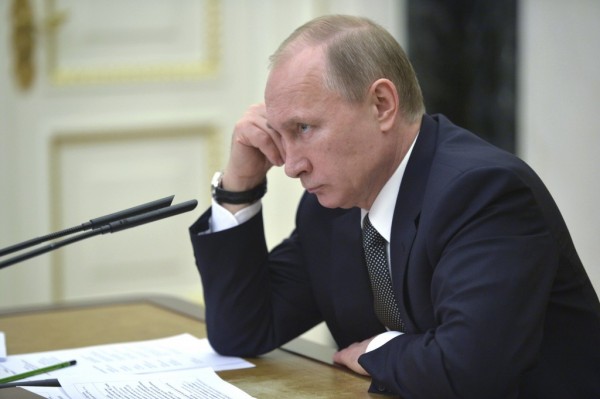
The EU is to escalate its efforts to counter Russia’s hybrid warfare campaign in the wake of Donald Trump’s election, as fears grow that Vladimir Putin will seek to influence elections across Europe.
With national elections happening in Germany, France and the Netherlands in the coming months, extra funds of about €800,000 (£690,000) have been made available to the EU’s East Stratcom taskforce, which is seeking to collate and counter Russian attempts to influence votes through misinformation and propaganda.
The cash is to be spent over the next six months and comes from the current budget of the EU’s external action service (EEAS). Senior MEPs admit they fear Russia’s apparent impact on the recent US election will only encourage campaigns on the continent.
Petras Auštrevičius, a Lithuanian MEP, said it was clear that the EU needed to be more agile in responding to disinformation campaigns. “I think the Russian involvement in the US election was a test case. For Russia it was important for them to start big. I think for smaller countries, more exposed to Russia, the risk is now very big,” he said.
The EU set up its East Stratcom team in the autumn of 2015 to counter fake news and misinformation coming from the Kremlin. The unit has 11 staff dedicated to explaining the EU and countering anti-western myths circulating in Russia and other former Soviet states. It is understood the new money will fund a further eight permanent positions, and it is hoped there will be another cash injection later this year.
The unit was set up at the behest of EU leaders to tackle misinformation emanating from the Kremlin but is increasingly encountering fake news from non-Russian sources such as Breitbart.
In recent weeks the unit has been correcting a widely shared and entirely false story that claimed that a 1,000-strong mob chanting “Allahu Akbar” burned down Germany’s oldest church.
EU officials estimate that Russia spends $1bn (£801m) on state media outlets such as RT and Sputnik, and has an unknown budget for troll factories, which flood social media with anti-western diatribes. In contrast, the EU unit relies mostly on member states and a modest slice of the EU’s communication budget.
The team of more than 400 journalists and officials, has collected about 2,500 examples of misinformation in 18 languages, although officials believe they are only scratching the surface. Since the Cologne attacks on New Year’s Eve 2015, Angela Merkel, the German chancellor, has emerged as the biggest target for Russian disinformation.
Donald Tusk, the European council’s president, said in October that “Russia’s strategy is to weaken the EU”, highlighting “all sorts of Russian activities, from airspace violations, disinformation campaigns, cyber-attacks [to] interference in the political processes of the EU”.
The Baltic states, with substantial Russian-speaking populations, were the first to warn of meddling from Moscow in domestic politics. Sanita Pavᶅuta-Deslandes, Latvia’s ambassador to the EU, told the Guardian recently that Russian disinformation campaigns were a constant concern.
Speaking in October, she said: “We receive their broadcasts and there is part of the population that watches it every day. They also give the interpretation of not only what is happening in Russia, elsewhere in the world, in Ukraine, but also of issues of domestic concern – what is going on in our country, and this is where the danger lies.
“The messaging is much more subtle. It sometimes tries to show, ‘See the government cannot cope, it cannot solve your everyday concerns,’ implying there is something wrong with the political system and the government. At the same time there is no real possibility for us to compete in the sense that Russian TV channels have much bigger financial resources and entertaining capacity.”
Only a few years ago the Baltic states were fighting a lonely campaign against Russian disinformation, she recalled. “Other countries that didn’t feel so much exposed today encounter the same kind of influences that we are used to.”
The Guardian

Leave a Reply
You must be logged in to post a comment.